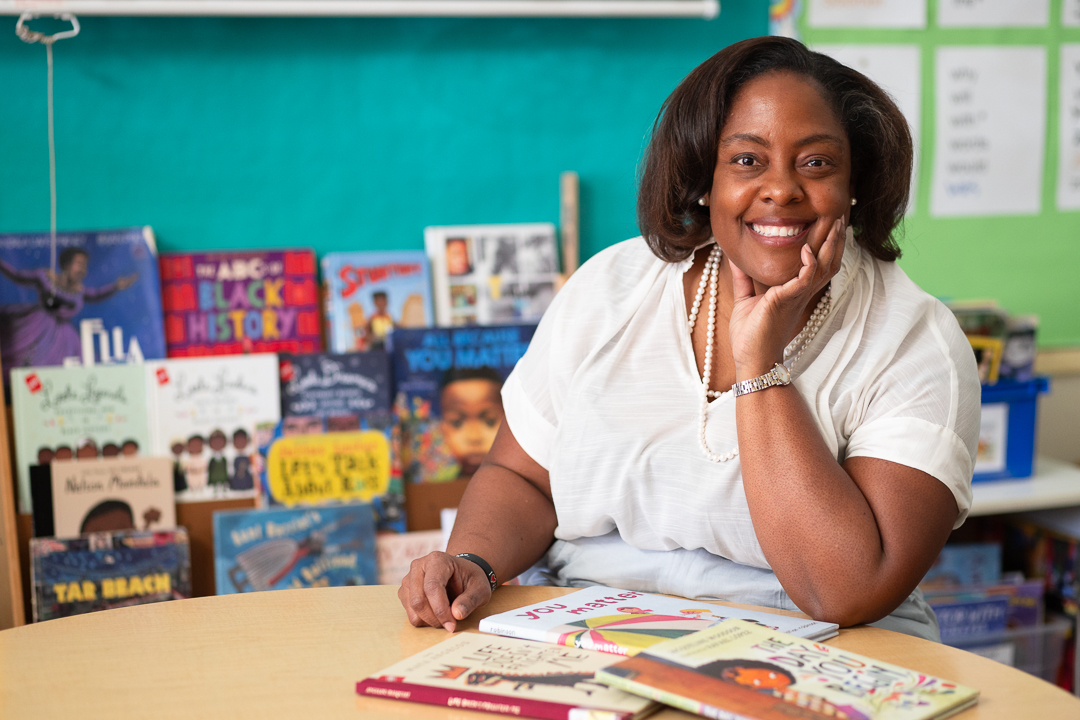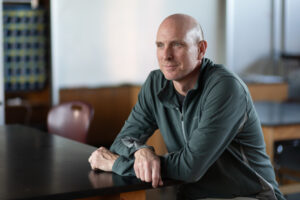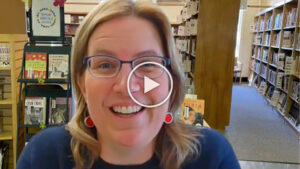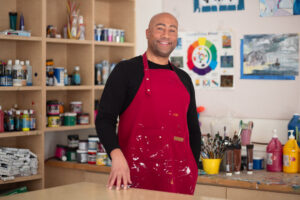When I was in first grade or second grade, they pulled me out of the classroom to teach other students how to read. I guess I was a really good reader. I don’t remember why they asked me, but they were really curious how I knew how to read so well.
My siblings and I loved to play school. It was our favorite thing to do. Even as a teenager, I taught Sunday school.
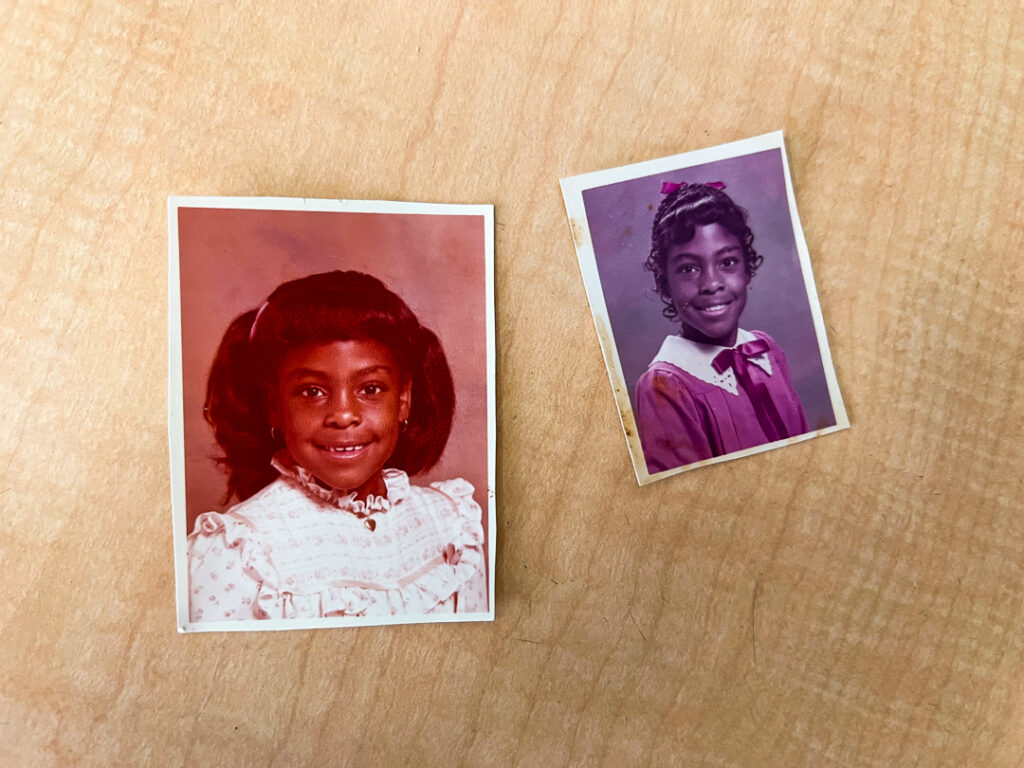
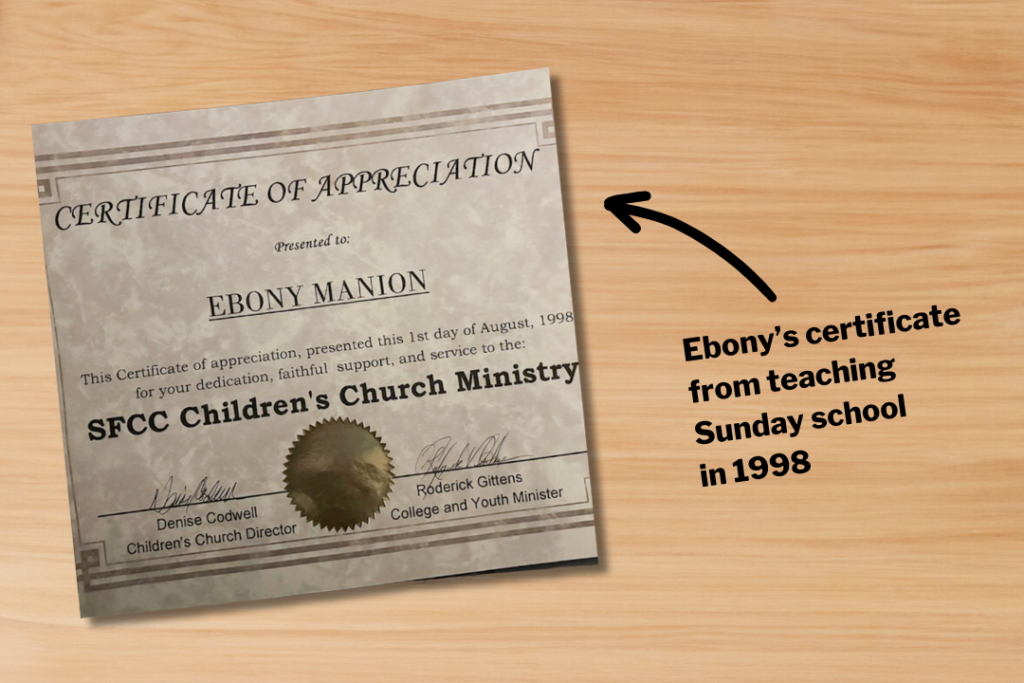
But when I was a kid, people always wanted to be lawyers and doctors. That was the thing they wanted you to say. I knew that they made a lot of money, and I thought, ‘Well, I want to do that too.’ Every year people would ask me, ‘What do you want to be when you grow up?’ I’d say, ‘I want to be a lawyer.’ All the way until college.
After getting into college, I didn’t know what I wanted my major to be, but I still wanted to be a lawyer. I felt if I worked at a law firm, and then started studying for the LSAT, I would get closer to that goal. So I worked at a law firm as a clerk. I would take documents and file them at the courthouse, make copies of depositions, and relieve the receptionist for breaks. I would see the attorneys and all the work that they had to do, and sometimes they’d be so angry. I thought, ‘Gosh, I don’t know if I want to do this.’
I took this Black Studies course where I was charged with coming up with a lesson plan to teach students at a local elementary school. This was twenty-odd years ago, and I believe it was something combining math with a game. The students were so receptive. They loved it. It just really inspired me. I was so enamored by the kids. It was a different perspective.
I decided, ‘I think I want to go into teaching. Teaching sounds much, much easier.’ Or so I thought. I think teaching is equally as hard. But I love it so much. I can’t see how people go to work and don’t like what they do.
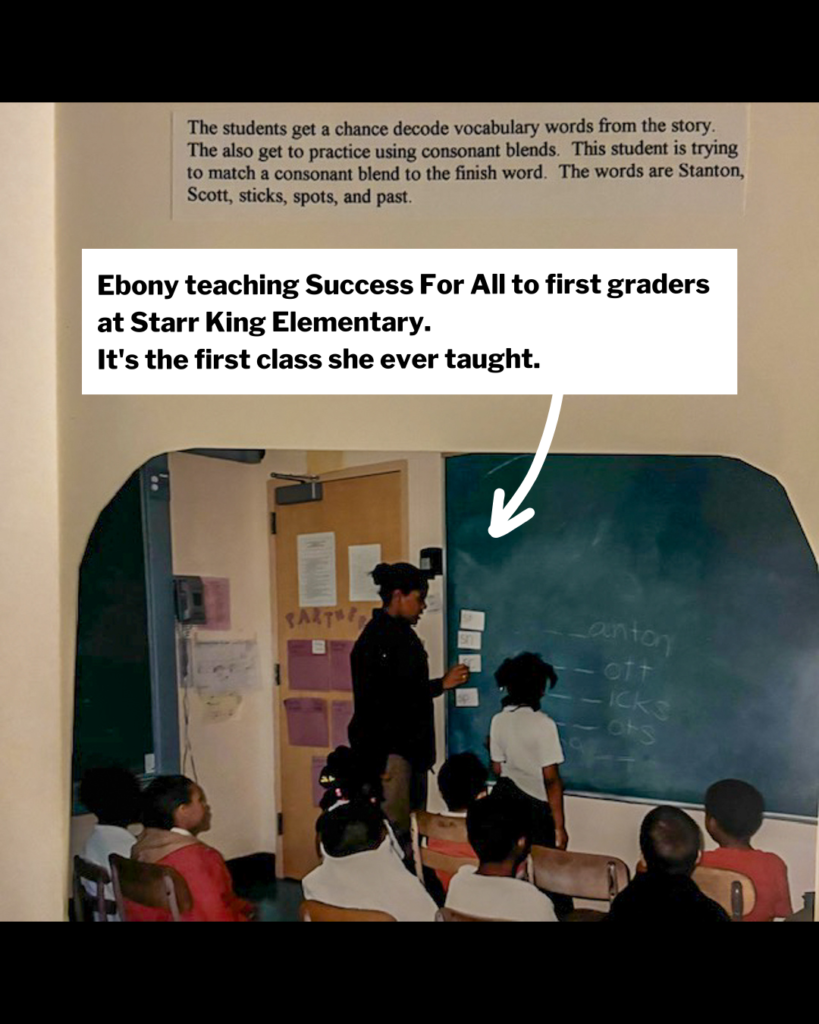
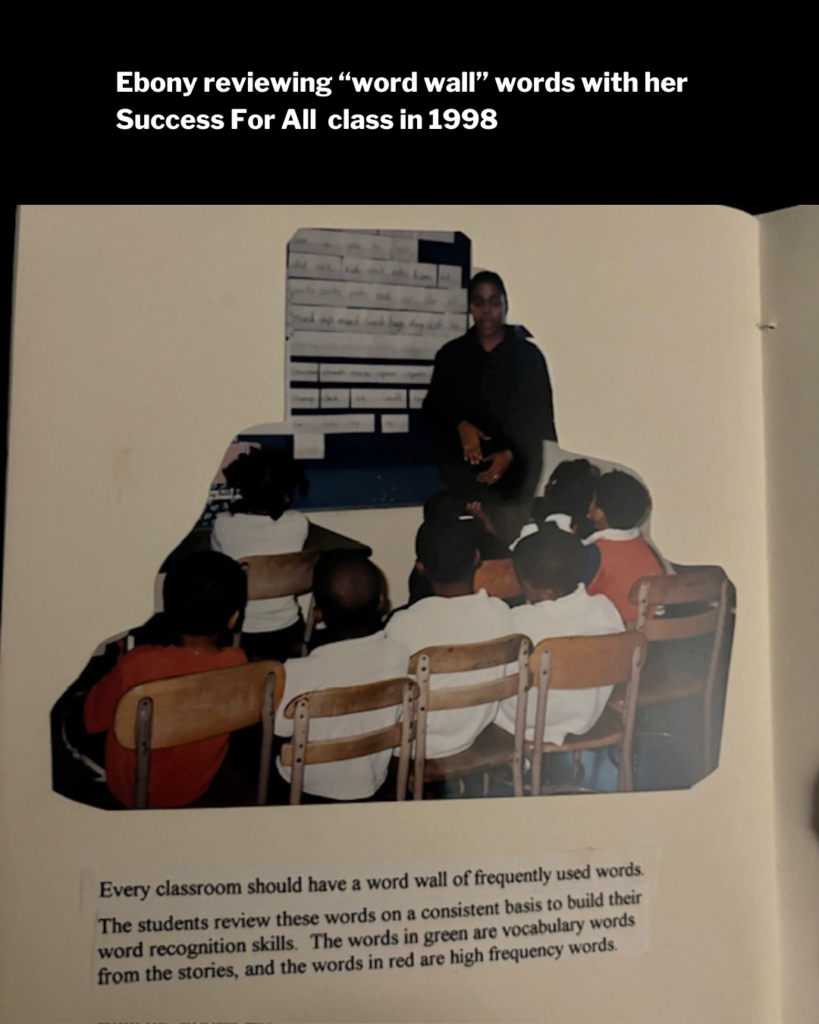
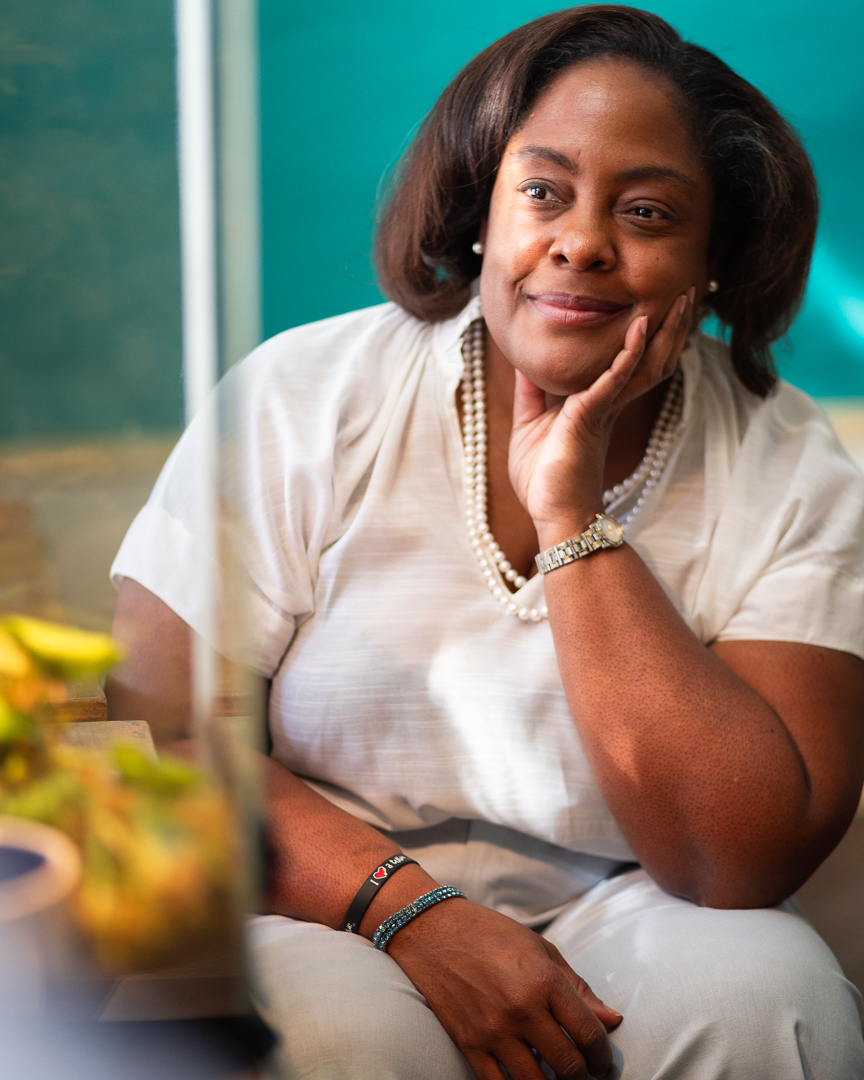
I went to Howard University at first, then transferred to San Francisco State, which is where I took classes in the Black Studies department — it was fascinating. I didn’t know that there was so much I had to learn about my own culture. One class led to another, and before I knew it, I was diving deeper and deeper into Black Studies. In the end, I had enough credits to double major in Black Studies and Liberal Studies.
I volunteered at two elementary schools in the Bayview neighborhood during that time. I felt like they needed me. I just went for it. Then there was this interview that you could do with the district, for a district position, and I got this job working at Starr King Elementary in Potrero Hill as a Reading Recovery teacher.
In that job, I would take a small group of kids who were performing below grade level and do a program with them called Success for All, where I would teach them phonics reading skills following a scripted program. I loved it so much that I applied with the district to enter San Francisco State’s teaching credentialing program.
For two years, summers and weekends, I took classes on how to become a teacher. During the school week, I worked in the classroom.
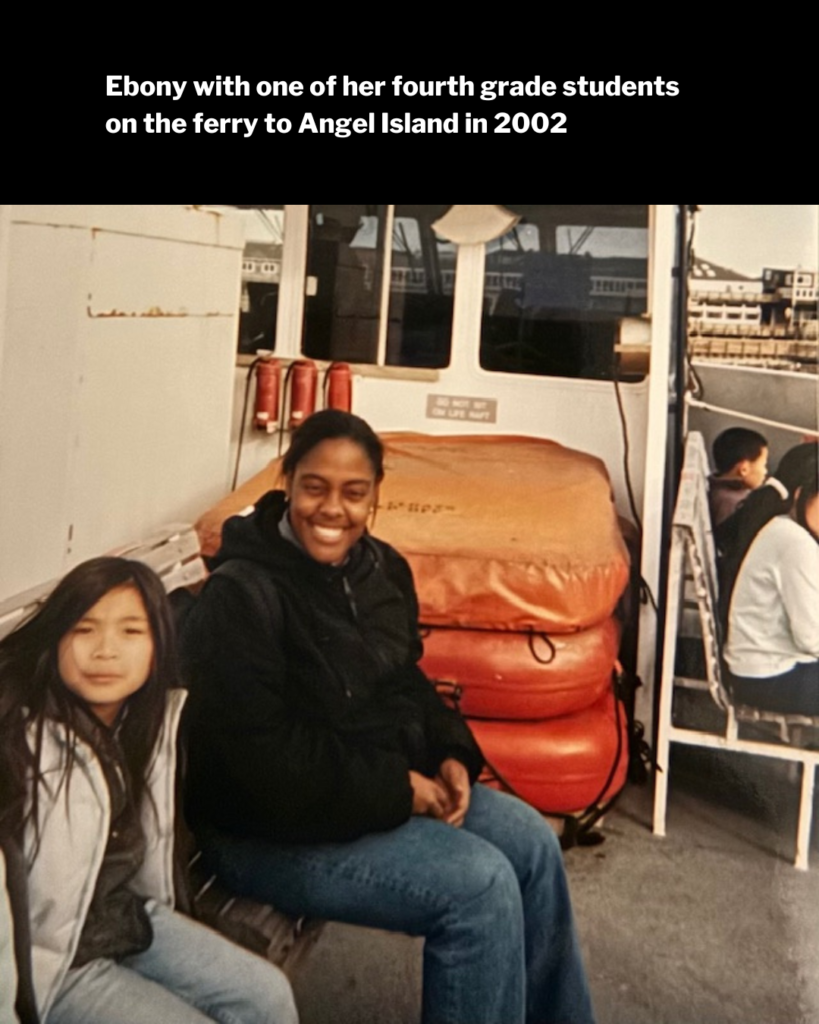
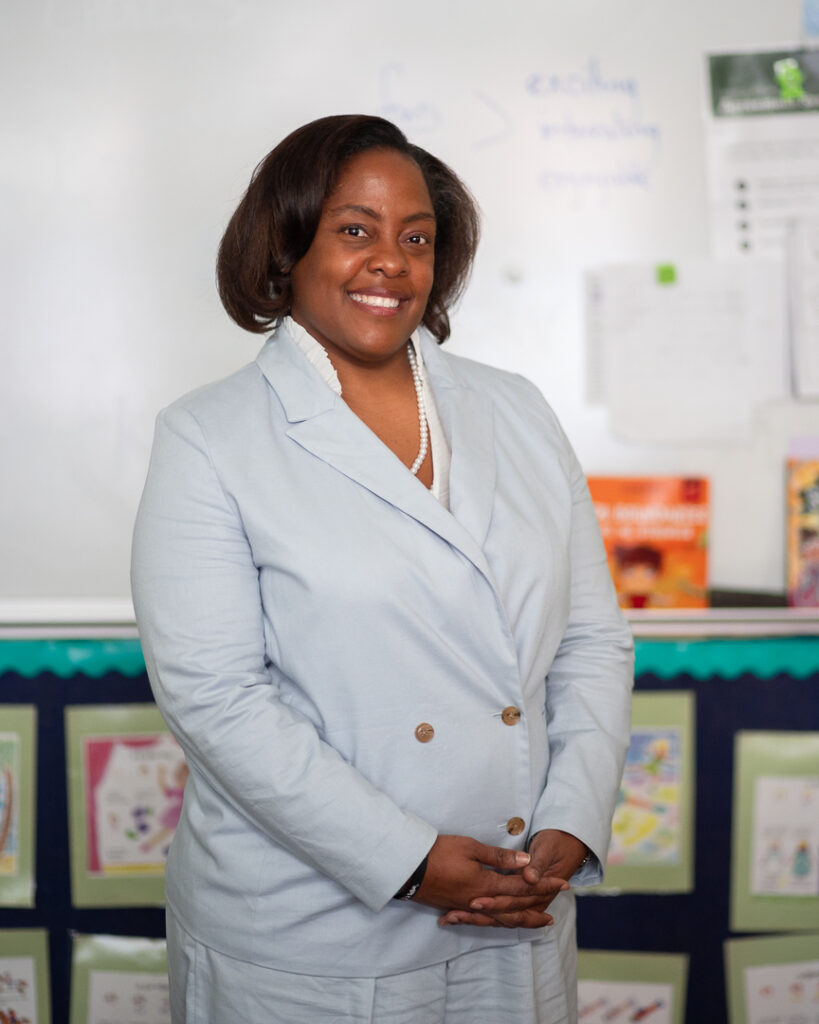
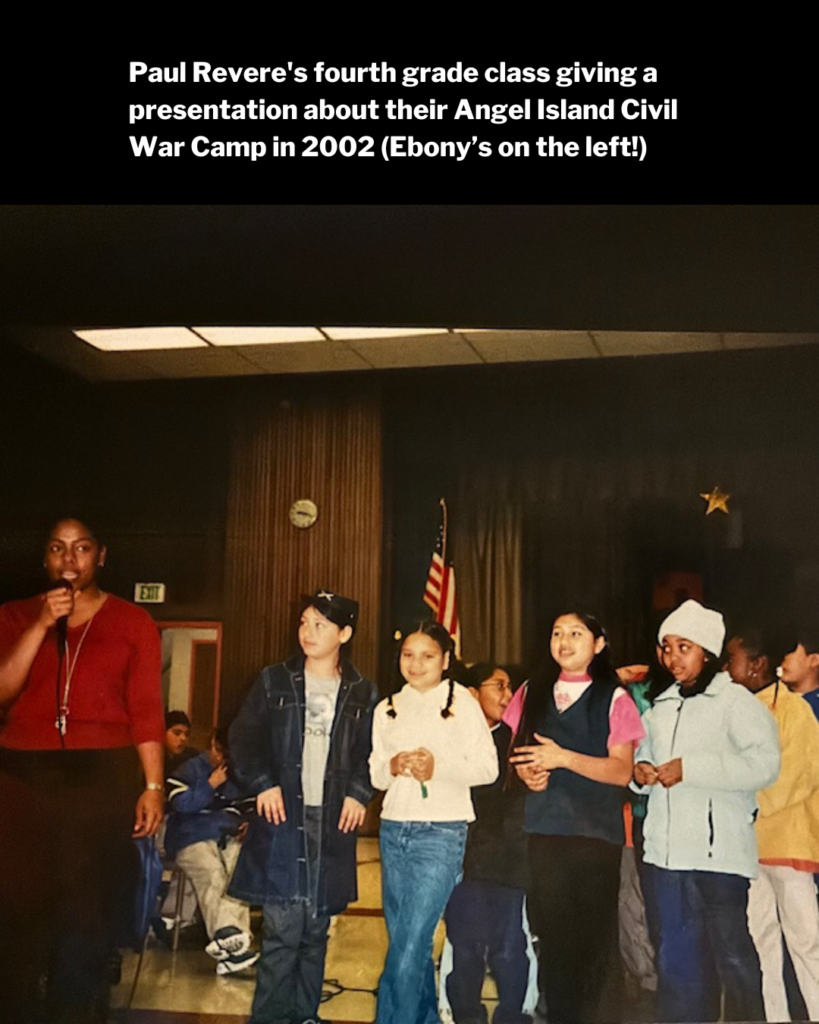
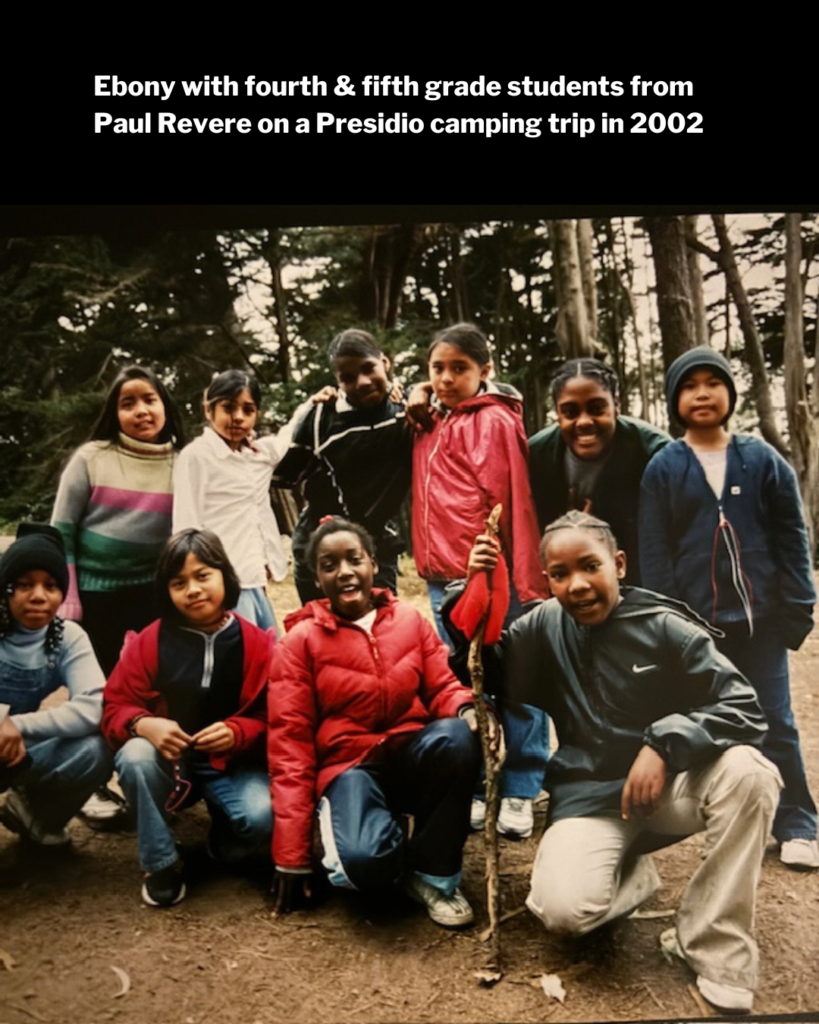
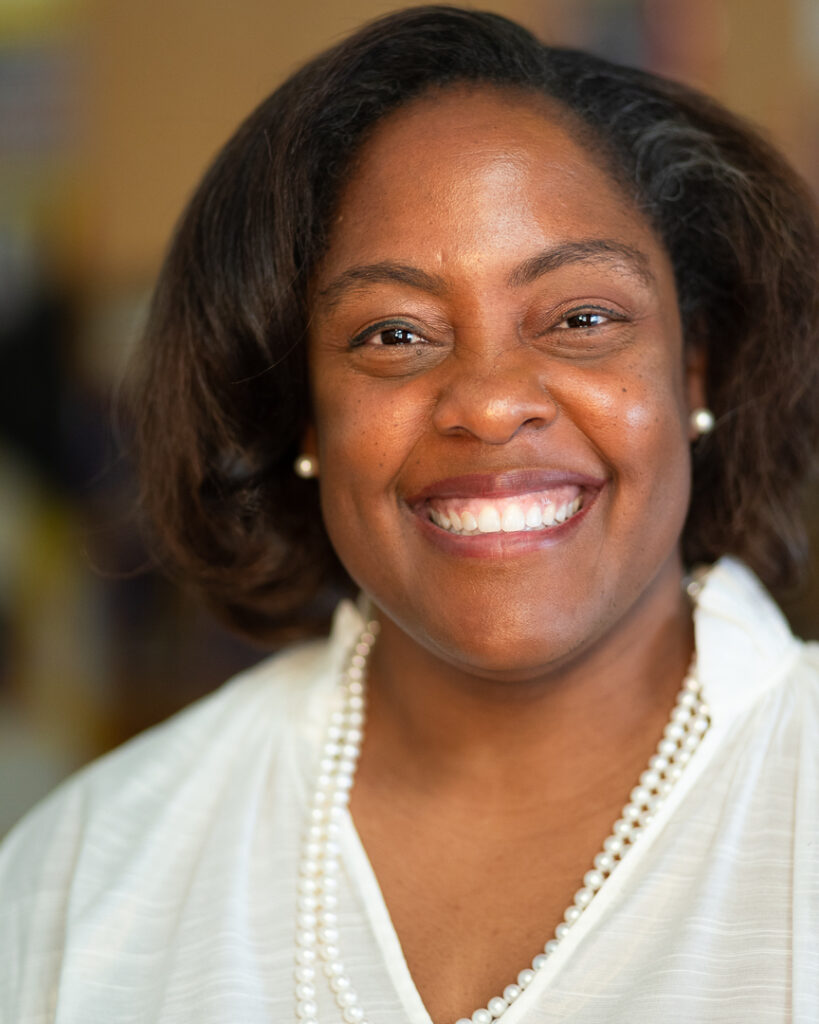
After I got into the teaching credentialing program, I had to leave Starr King to be in a general education classroom, so I went to Longfellow Elementary. I had a mentor teacher who would come and talk about my lessons and what I could improve on. At the time, Longfellow was going for their Distinguished Schools Award. As part of that process at the school, the teachers who were tenured got to pick whatever grade they wanted to teach.
A teacher decided they wanted to take over my classroom, so I had to leave that school at the end of the year… I know, it’s terrible. I left, but since I was still in the credentialing program, they had to find me another position because that was part of the credentialing process.
I ended up working at Paul Revere School in Bernal Heights, and I actually really loved it there. That school had a community, and people rallied around the principal. But then it got really hard, because right after I started, the principal died. The teachers stuck together, even though we didn’t have any leadership.
The other thing about Paul Revere was that it was kind of a ‘dumping ground’ (respite) school, where other schools sent transient students or kids who couldn’t make it at those schools. I found my niche there, and I found some really good people to support me. I stayed three years, and then unfortunately I had to leave that school, because the No Child Left Behind Act came into play.

I was close to finishing my credentialing program, but I wasn’t yet credentialed because there was a teaching test that I was having trouble passing. I was a good teacher, but I was not a good test taker. I had taken the coursework, but I hadn’t been able to prove subject matter competency by passing the standardized test, which is often skewed culturally.
Once I’d tried multiple times and realized I couldn’t pass the test, I started working on the additional coursework they allowed you to take in order to waive the test. However, when the No Child Left Behind Act became law, it made all my coursework invalid, unfortunately. In the same way that NCLB emphasized standardized testing for students, it emphasized it for teachers as well and got rid of the non-traditional paths for completing credentialing. I had acquired enough units to have multiple degrees.
It was frustrating because I had gone through the teaching program and taken classes in instruction, reading, math, science, and classroom management. I was interviewed and constantly evaluated. I’d done all of that. I just didn’t pass the standardized test. If I’m showing that I am willing to continue to be evaluated and to have professional development, what is that test really going to determine?
That’s why I became a private school teacher. I was working at a public elementary school that needed teachers and needed stability, but I was unable to continue teaching there because of the new testing requirement.
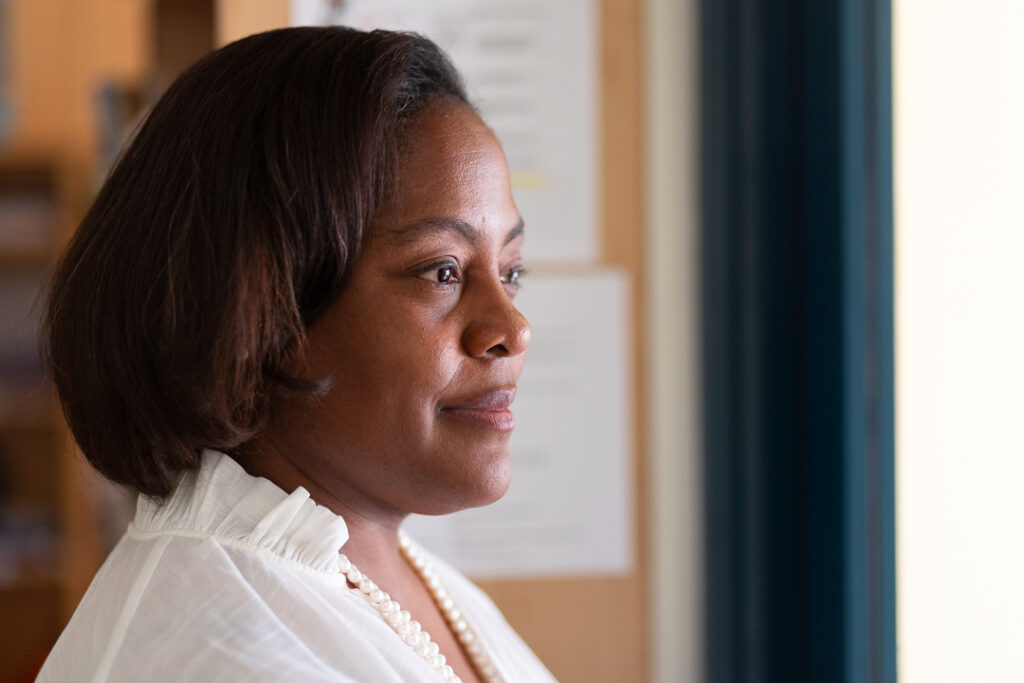
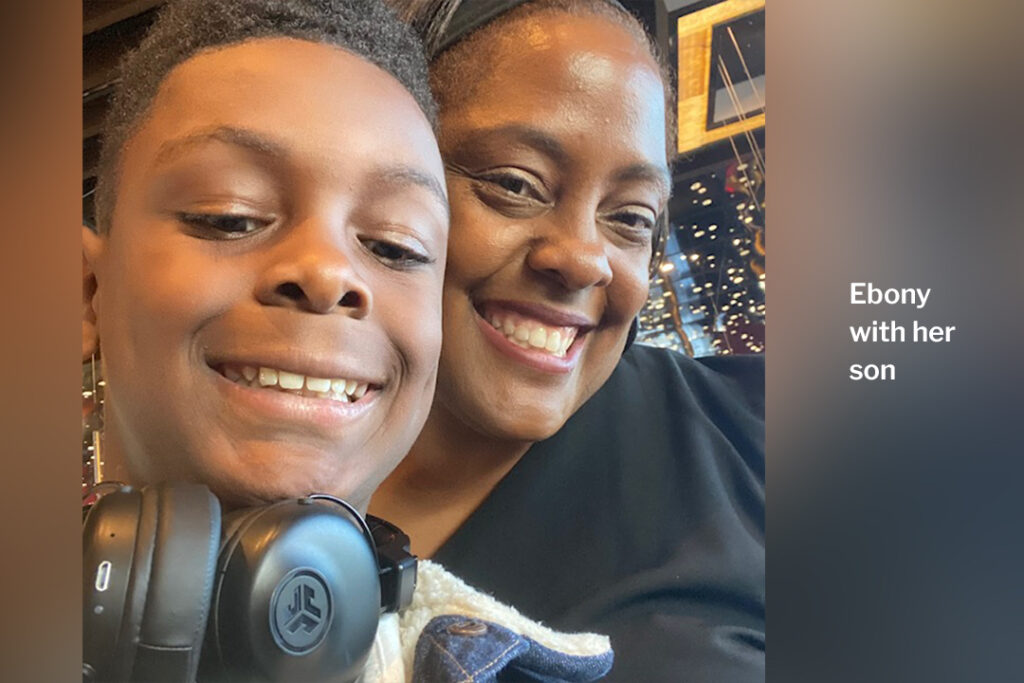
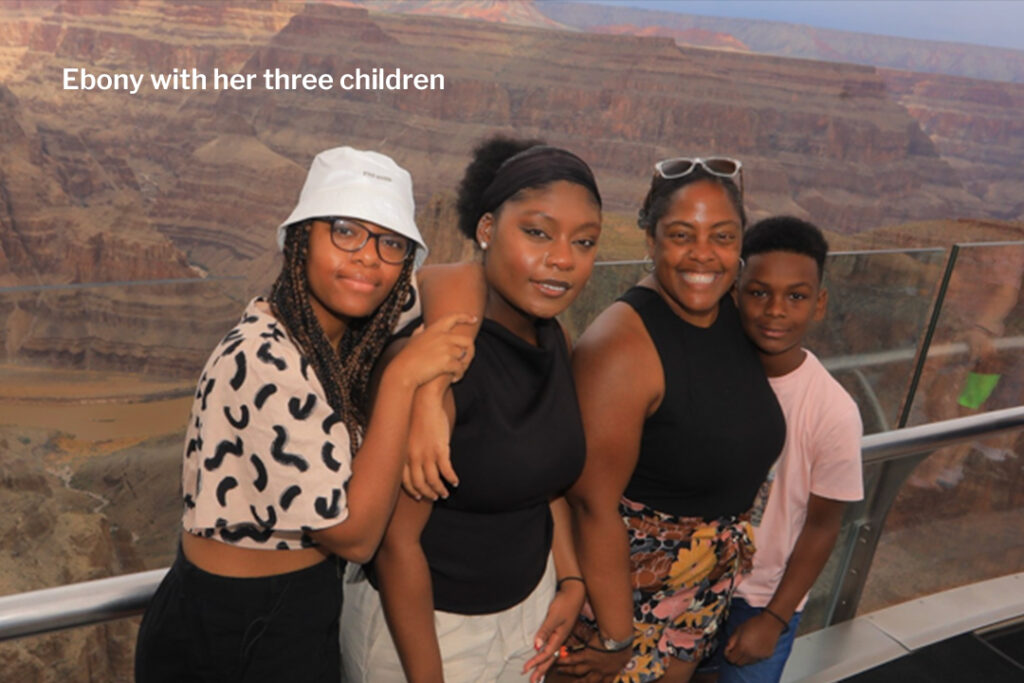
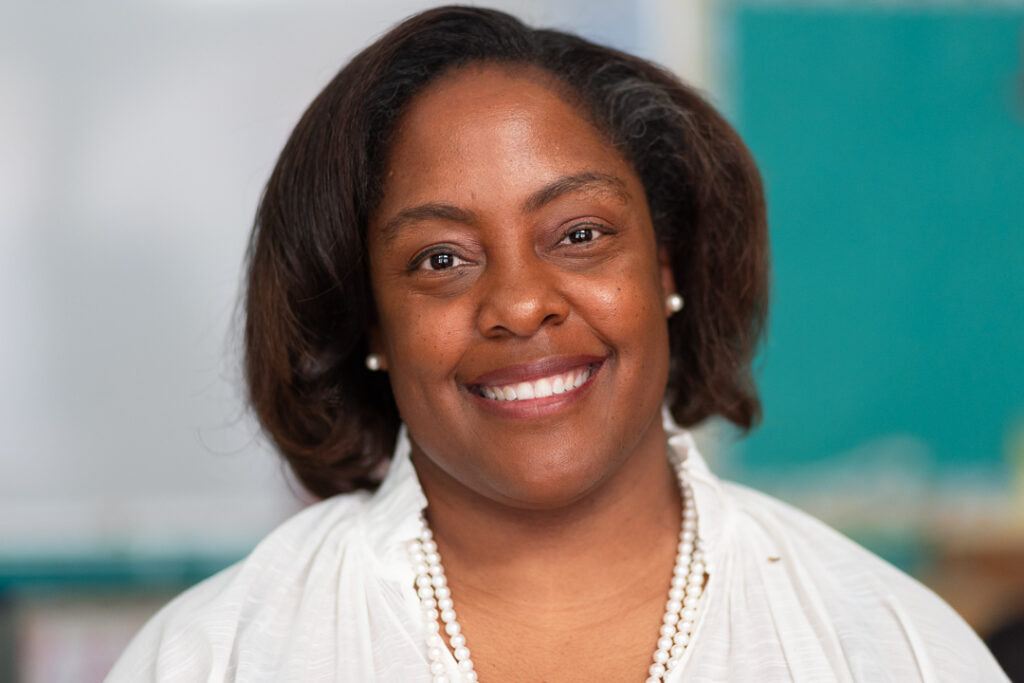
I have three kids, and my son has been diagnosed with autism. He goes to public school, and I see where the system is failing him and where he’s not getting his needs met. It’s so disheartening.
My two daughters went to Synergy, where I teach. They had such a rich K-8 education, and so much exposure to things I never got to see or do in school. Unfortunately, for my son, our small school is just not the right fit for him at this time. We only have one learning specialist, and he has some needs that go beyond the ability of the school. It’s a sad thing, because I know his potential and what assistance he needs that he’s not getting at his current school. His school has a one-sided view of who he is as a kid. I want all students to see the potential that they have. I want them to be successful in the world and to feel loved and cherished at school. It’s really hard to see that not happening for him.
Teaching is such a huge responsibility. Parents have a lot of questions like, ‘Will my child learn how to read? Will they make friends?’ Those aren’t necessarily things that you can answer right away — it is your hope that every child will have quality teachers who educate them, nurture them, and lead them on the right path, but the child has to want it too. And the teacher has to have the services available to provide for them. I’m noticing a lot of times in public school, that’s not the case.
I recently had to do some advocacy for my daughter. She’s at a public high school in Oakland where her teacher had to go out on medical leave. For almost a month, her class did not have a teacher, but they had to show up every day to that class for attendance. The substitute would come and take attendance and they wouldn’t be assigned any work.
This is geometry — a crucial class for graduating high school. I was livid. I finally told them that if I need to take legal action, I will. That same day, my daughter was transferred to another math section. Why couldn’t that happen before?
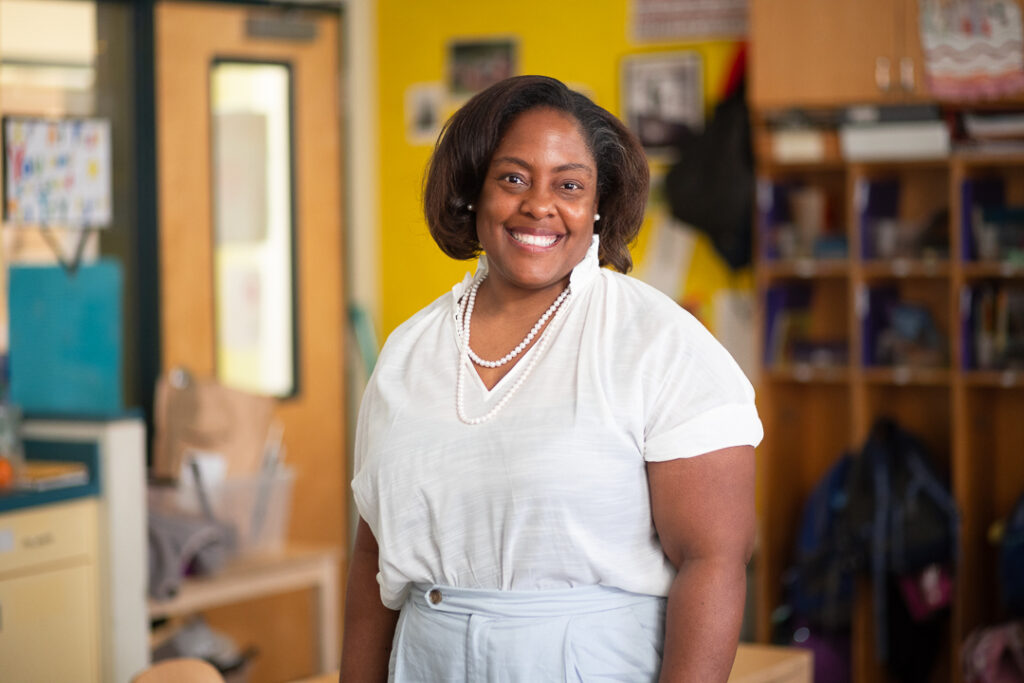
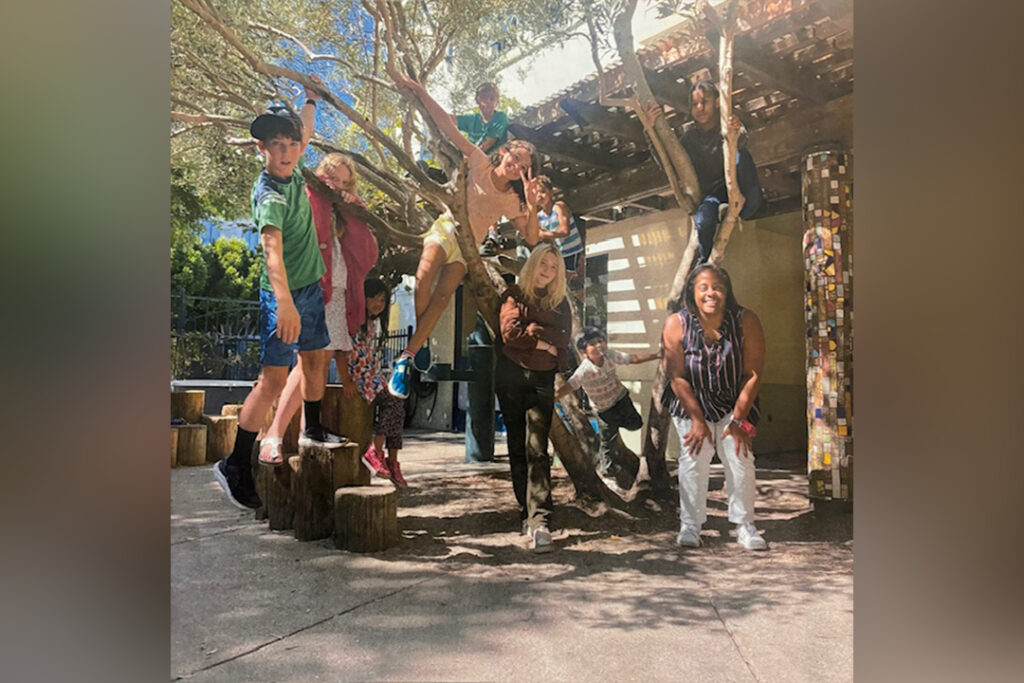
Teachers educate every profession in the world. But a lot of teachers are living out of their cars or getting multiple jobs just to make ends meet. Many of the teachers that I know are also tutors.
As teachers, we have many jobs in the classroom: you’re the doctor, lawyer, parent, counselor, and kids come to school with different needs, and you’re filling that role for them. It’s such a great feeling to be wanted and needed, and definitely at the age level that I teach. The kids are always so loving in first grade, but I feel like I have that same connection with the older students here too. They let you in their circle and laugh and joke with you.
I had a student some years ago; we were always calling home about some behavioral challenges that he was having. He continued to have them after he left my classroom. He ended up graduating from Synergy. Years later, I ran into him at a grocery store with his grandma. I told him I knew he could do it, and he said to me, ‘You know, I’m sorry, I was such a rascal, thank you for being such a good teacher.’ It warmed my heart.
He is a college-educated African American young male who could have been failed by the educational system, but people kept believing in him. I believed in him. I’m so glad we stuck with him. That’s what we should do with every kid.
I had one teacher growing up who was a teacher of color. He was my fifth grade teacher, and his name was Mr. Pierce. One day he asked me, ‘Do you have an aunt named Pamela?’ It turned out he went to high school with one of my aunts. I felt like he knew where I was coming from. And when children of color come to a school like Synergy, and they see teachers that look like them, I believe it’s a comforting thing — to know, ‘There’s somebody who looks like me and is able to educate me and who understands where I’m coming from.
–Ebony Manion
Teacher at Synergy School
San Francisco, CA
